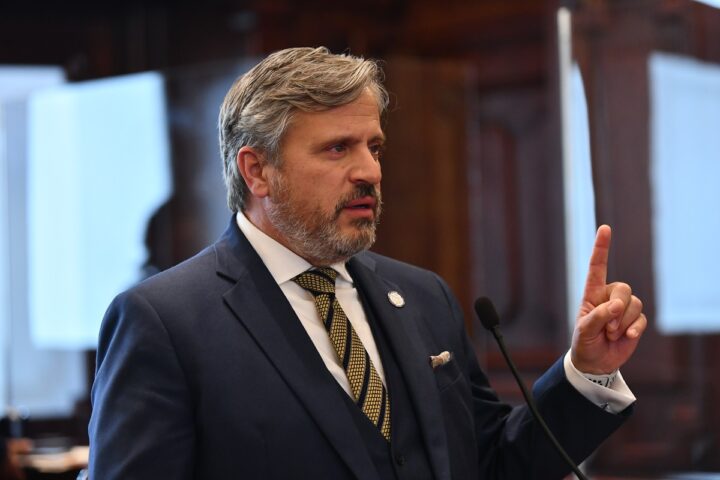SPRINGFIELD – State Senator Robert Martwick (D-Chicago) believes energy legislation that passed the General Assembly today takes firm steps to address climate change by setting deadlines for increased clean energy use and, fossil fuel-burning plant closures, as well as establishing incentives to speed up the adoption of electric vehicles.
“Climate change is everyone’s problem,” Martwick said. “If we don’t act now, our children and grandchildren will face an increasingly harsh world, dominated by heat, extreme weather, droughts, and water scarcity.”
The legislation, Senate Bill 2408, would set a goal of a 100% clean energy economy in Illinois by 2050. It also would establish deadlines along the way for the adoption of more renewable energy and the closure or conversion of fossil fuel-burning plants. To help encourage more people to purchase electric vehicles, it would create a consumer rebate and incentives to build more charging stations in locations across the state.
The comprehensive measure also would create a number of safeguards for Illinois’ energy consumers, helping lower costs and increase utility company accountability. For example, it would formally empower the Illinois Commerce Commission to investigate ComEd – and any other utility companies found guilty of criminal behavior – and impose penalties that could include returning money to customers. It also would ban the practice of charging “convenience fees” for customers who prefer to pay using debit or credit cards rather than enrolling in auto-pay or direct bank transfers.
“We not only need to fight climate change, we need to modernize Illinois’ entire utility system,” Martwick said. “That means creating good-paying clean energy jobs and requiring utility companies to accept common forms of payment without charging extra fees.”
The legislation, which now goes to the governor for his signature, is expected to create or preserve tens of thousands of good-paying jobs in the clean energy economy, supported by a robust network of training programs.


